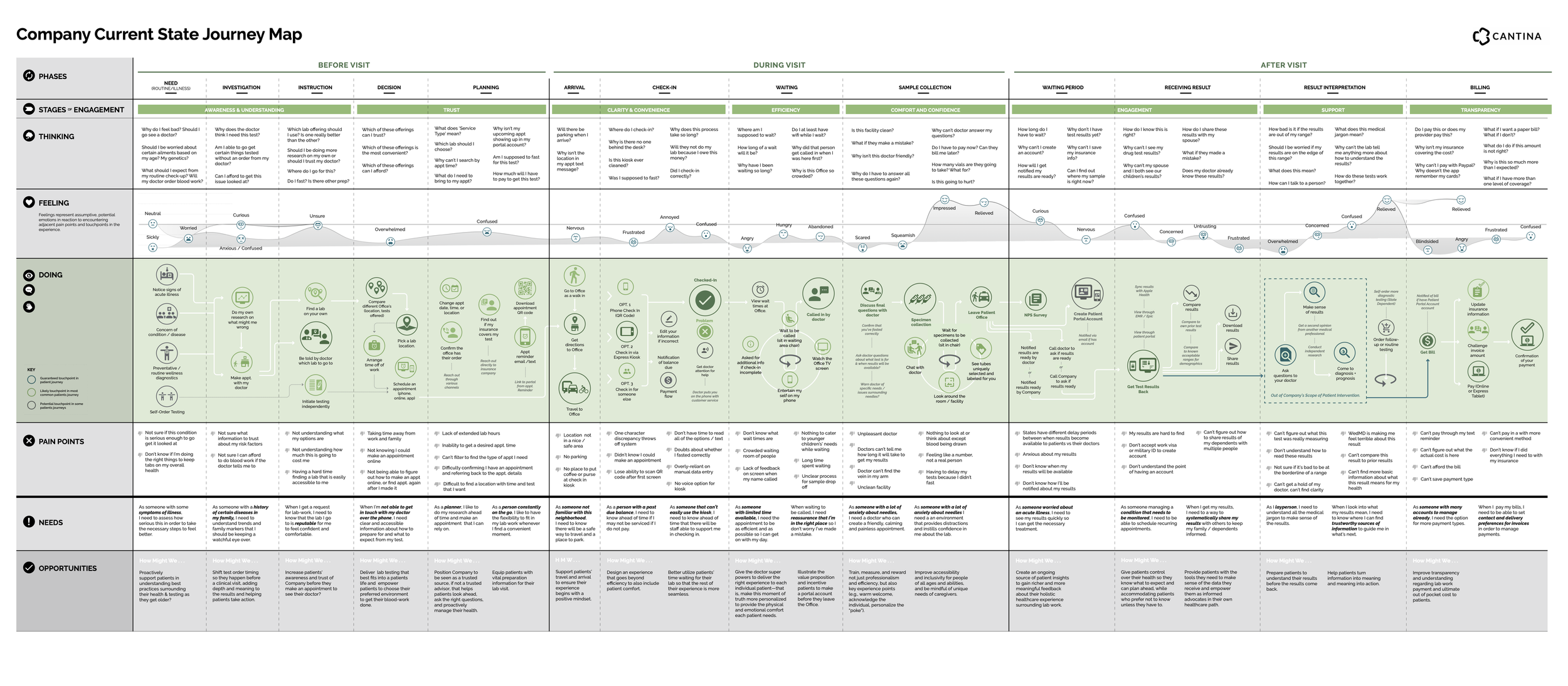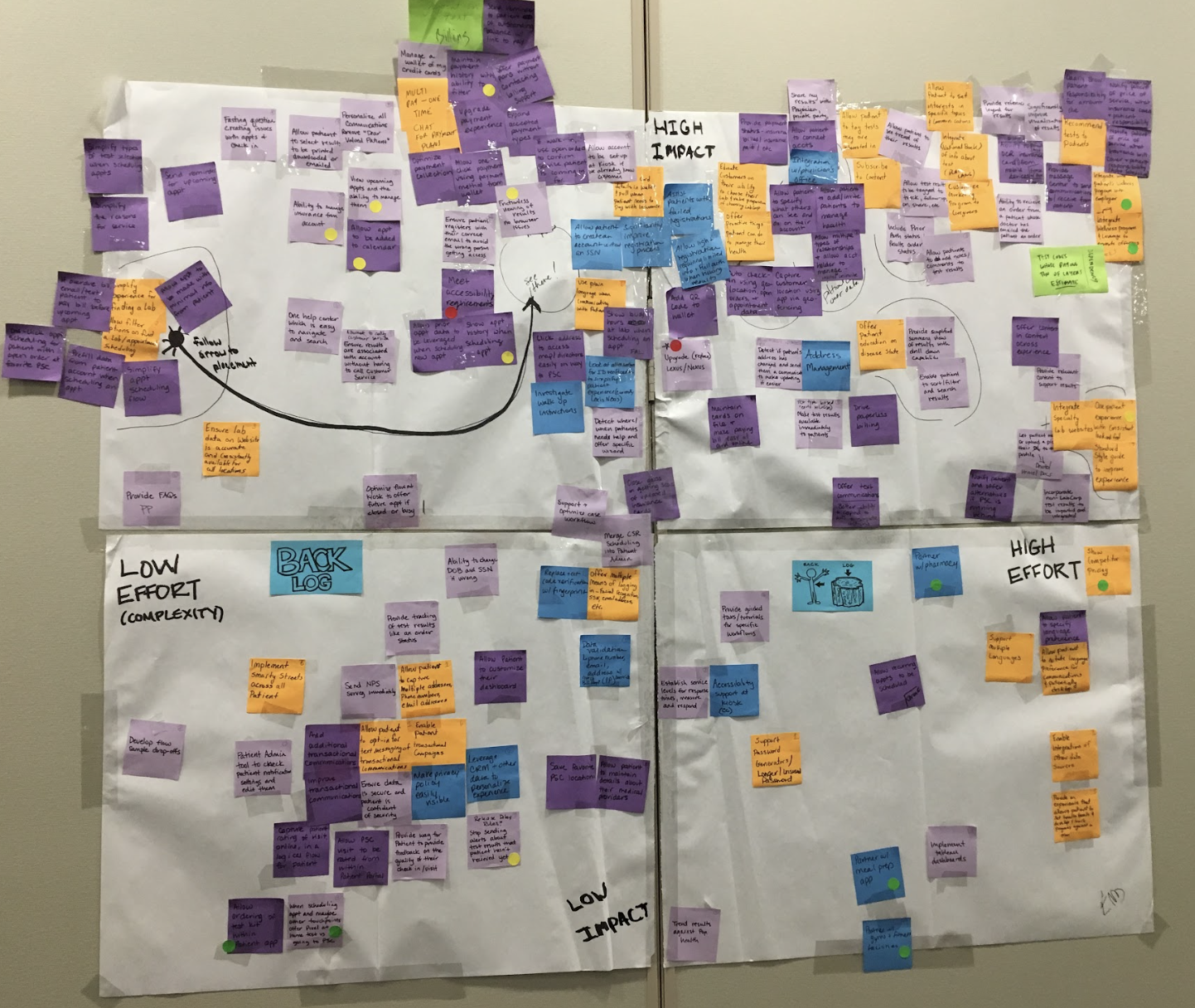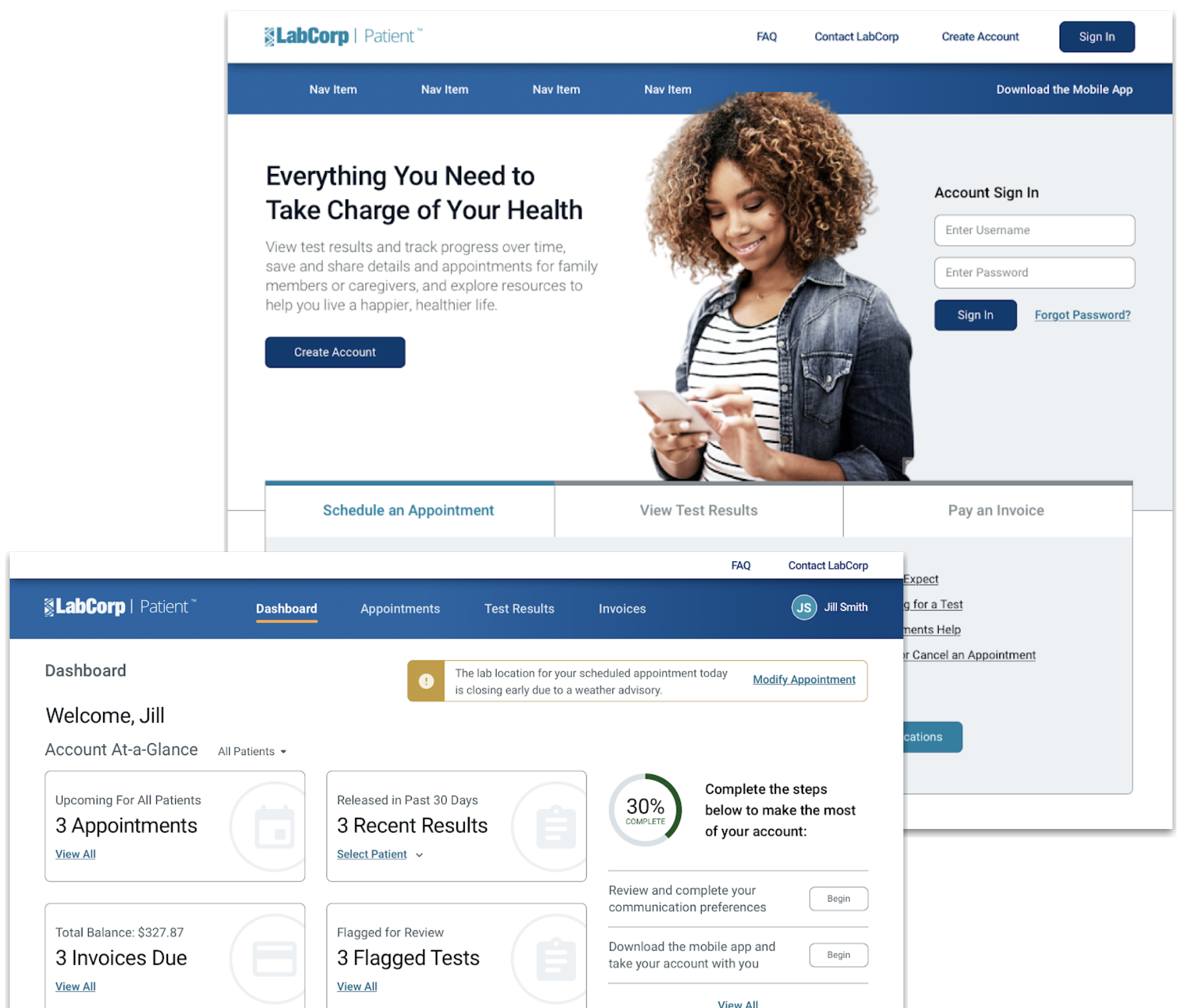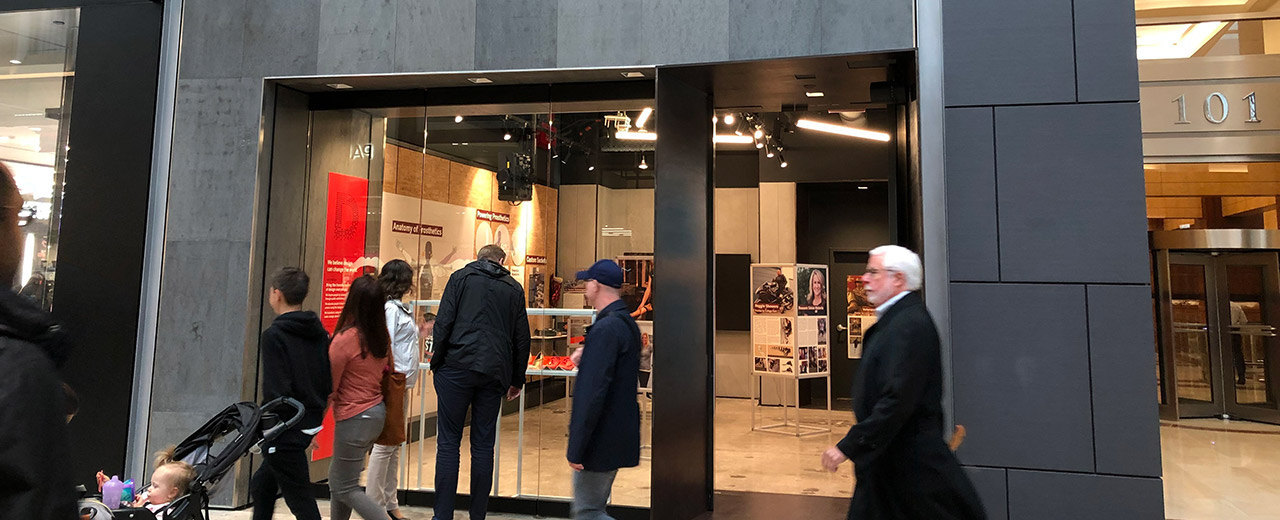LabCorp’s charge was to double-down on their excellent customer service, but
to ensure it was delivered well throughout the entire customer journey. Each
stage and touchpoint—from scheduling and arrival, to testing, results, and
billing—needed to be considered not as discrete activities but as part of a
larger patient experience. LabCorp also wanted to explore, prototype, and test
innovative ways to expand the value that LabCorp provides patients before,
during, and after their diagnostic experience.
We started with LabCorp stakeholder interviews, and then undertook field
research—observations and a series of one-on-one patient interviews. We
documented 13 stages of the patient journey, with 56 significant pain points,
and 20 unmet patient needs.
Sanitized version of the
LabCorp patient journey
Prioritized backlog,
including existing items and new opportunities from research.
In a collaborative workshop, we reviewed our findings and translated them into
a prioritized backlog, combining LabCorp’s known backlog with opportunities
from our research.
This formed the foundation for targeted design. Our Sprint Plan included four
cycles focused on Appointments, Billing & Insurance, New Account Creation, &
Test Results (later expanded to include the Homepage, Dashboard, & Help
Center). Each cycle included user testing and feedback, with iterative
improvements to meet key experience metrics. From both a usability and
desirability standpoint, the new designs were preferred over the existing and
competitor experience by almost 90% of testers.
The project concluded just prior to the Pandemic.
Our key business metrics included increasing the number of appointments booked
online to reduce walk-ins, reducing contact center calls due to patient
confusion, and growing the number of digital accounts. The new design met all
these key metrics. More importantly, its timing allowed LabCorp to rapidly
meet the needs of patients and providers during the disruption from the
Pandemic. Had they not doubled-down on patient experience, they would not have
been in a position to adapt so quickly to the unexpected.






